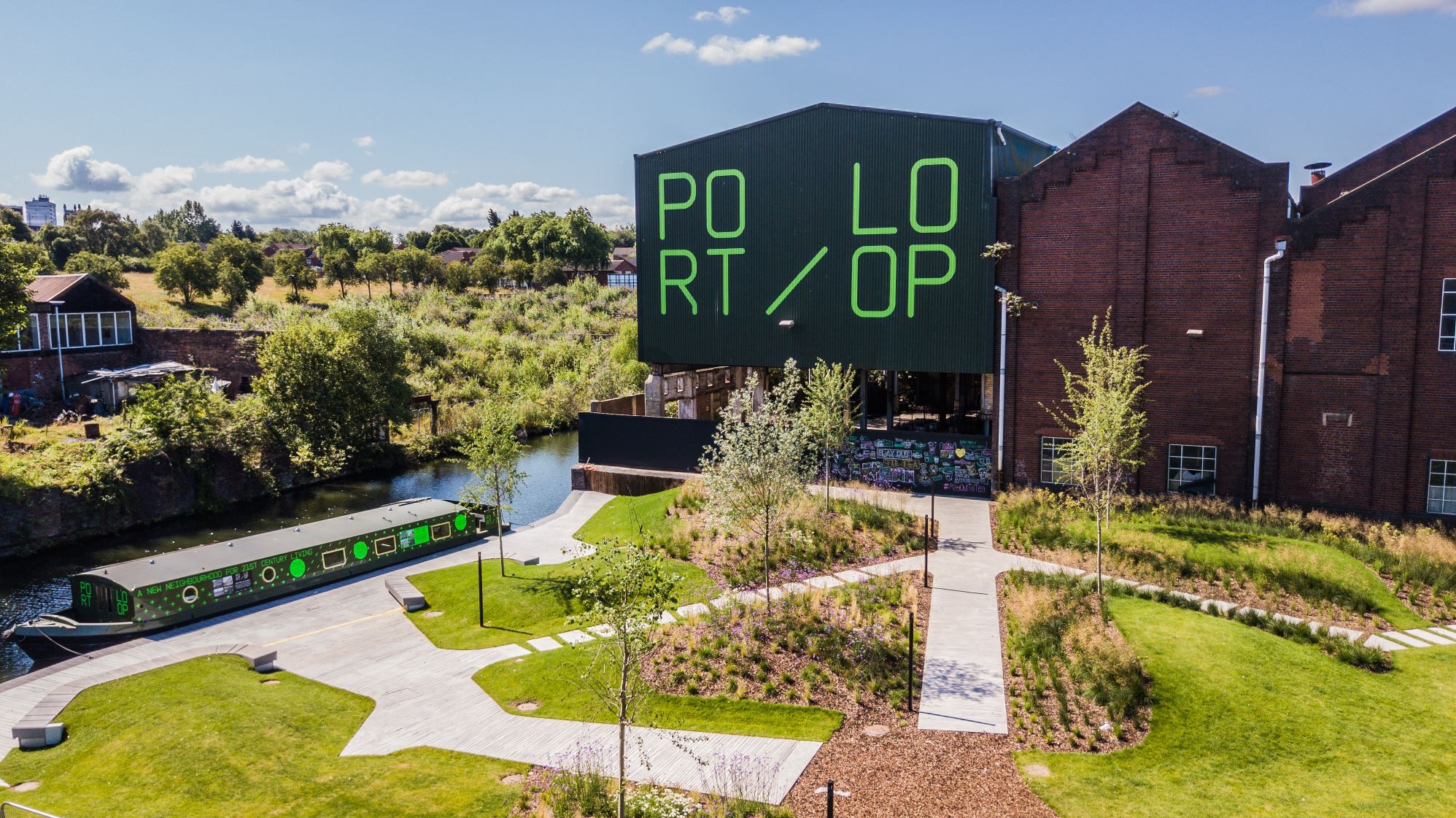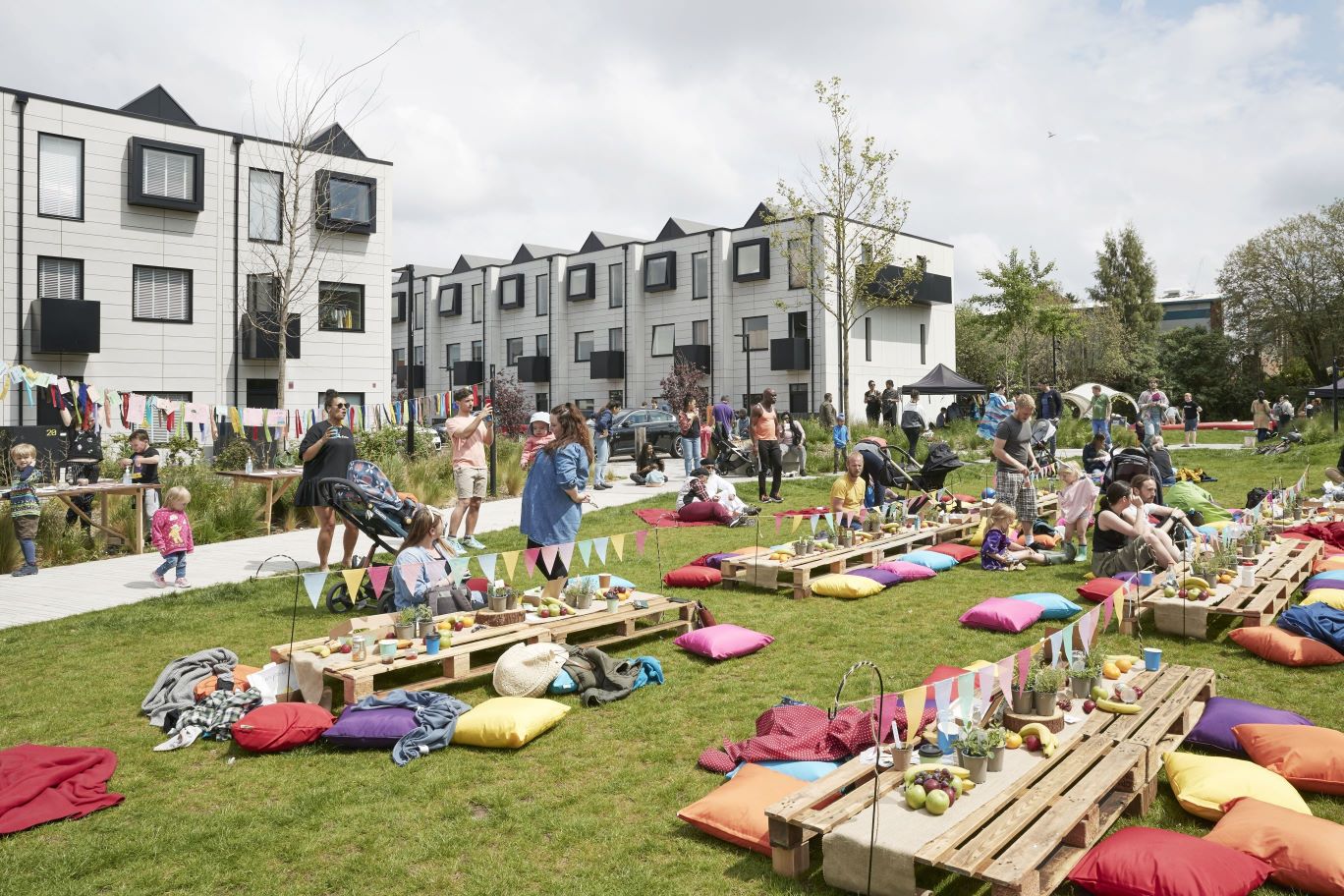The future needs innovators
Suzy Jones, Director of the Future at regeneration company Urban Splash and recent contributor to the Davos Baukultur Alliance at the World Economic Forum (WEF) head quarters in Geneva, outlines the housing sector’s role in reducing the United Kingdom’s carbon impact
Climate change is real. And it’s time to get our collective act together.
In the late 1980s NASA scientist James Hansen presented groundbreaking research to the United States Senate, demonstrating with 99 per cent confidence that rising global temperatures were directly linked to greenhouse gas emissions from human activity.1
Decades later at COP21 countries acted, with 196 parties signing The Paris Agreement2 to limit global temperature rise. Today, with gas emissions and global temperatures on the up, the multidimensional risks to our health, development, and biosphere still remain.
What does net-zero mean?
The solution we are told, is net-zero, but I fear that in the UK and beyond we don’t actually know what that term even means.
The multiple definitions of net-zero create a complexity which isn’t helping anyone. It’s a bit like teenage sex; everyone says they are doing it, hardly anyone is, and those that are, are probably doing it wrong.
For me, the Paris Agreement remains the most authoritative definition – describing net-zero as striking a balance between human-caused greenhouse gas emissions and their removal from the atmosphere. The Agreement also sets the ambitious target of achieving net-zero global greenhouse gas emissions by 2050.
 Port Loop, Birmingham
Port Loop, Birmingham
The role of housing
Regeneration companies like Urban Splash can play our part in achieving this, using design to create homes and neighbourhoods which limit our contribution to climate change. By thinking ahead and creating resilient structures we can mitigate things like weather events, or food, water and fuel insecurity.
One way of minimising our impact in the first place is by reusing existing structures: as American Institute of Architects former president Carl Elefante famously said in 2007, “the greenest building… is the one that is already built”.3
Our work at Park Hill in Sheffield is a good example of this. Once earmarked for demolition, the 1960s brutalist Park Hill estate received a Grade II* listing. Over 20 years, Urban Splash refurbished it, cutting carbon emissions by 55 per cent. The 700 homes include mixed tenures, fostering a diverse community with flexible commercial spaces boosting local vibrancy and economy.
Our approach wasn’t the cheapest, it would have been much quicker to knock everything down and start from scratch - but that’s not our bag. Instead we spent 20 years preserving the original building, saving huge amounts of carbon and creating a mixed use, mixed income, mixed tenure community in the process.
The case for new builds
But reusing and refurbishing existing stock is not the whole story, and we believe new builds are also part of the solution.
Take our work at Port Loop in Birmingham, and New Islington in Manchester – 400 mixed tenure, mixed typology newbuild homes, each created using both traditional and modern methods of construction. Many of them exceed LETI (Low Energy Transformation Initiative) and RIBA (Royal Institute of British Architects) best practice carbon targets and are 50 per cent more energy efficient than the average new build.
 The Big Lunch event at Port Loop, Birmingham
The Big Lunch event at Port Loop, Birmingham
Two heads are better than one
Urban Splash innovates differently but doesn’t have all the answers and creating more places like Park Hill and Port Loop will only be possible if the needs of people, the knowledge of the industry, and the powers of the government are all aligned.
Initially, I hope that businesses like ours can work with the government to create a single source of reference for net-zero. We need a standardised definition – one that is easy to digest, with consistent language and clarity that guides the industry. It should draw on existing and credible guides for best practice; the LETI Design guide, the RIBA 2030 challenge, UK Green Building Council resources and the UK Net Zero Carbon Standard that is already attempting to bring these together under one banner.
The threat of complacency
As we sit in the UK, it’s easy to overlook the devastating realities of climate change. But it’s time to stop being complacent; to nudge the needle and recognise ourselves as part of an international community.
That’s a big part of my work with the WEF, and I’ve learnt so much about the importance of integrating the insights of different cultures, traditions, and practices on a domestic level.
A guiding principle we’ve discussed is Seventh Generation stewardship. Rooted in Native American Haudenosaunee philosophy it emphasises making decisions about energy, water, and natural resources with the wellbeing of seven generations in mind.
While our current political architecture doesn’t lend itself to such timeframes, we must remember that planetary systems don’t work on five year cycles and applying the principle within the built environment can enhance sustainability across various fronts – environmental, social economic and geopolitical.
The UK government is about to guide us through a pivotal period of environmental and social change and it’s crucial to emphasise the urgency of our collective action in advancing net-zero housing as a pivotal strategy for combating climate change.
We must foster collaboration among regeneration companies like Urban Splash, architects, developers, policymakers, and residents, harnessing participatory democracy to craft resilient homes capable of adapting to the dynamic demands of society and the environment.
As new policymakers assume their roles this week, I’d welcome that collaboration and the chance to embrace the wisdom of the Haudenosaunee as we not only protect the wellbeing of those living today but ensure a flourishing legacy for many generations to come.
Urban Splash is a purpose-led regeneration company based in the north of England. Established in 1993, the company has created thousands of new homes and workspaces, transforming disused and unloved structures, adding value and nurturing sustainable new communities in places like Park Hill in Sheffield, Royal William Yard in Plymouth and Port Loop in Birmingham.
This article was originally published in The Path To Net Zero supplement circulated alongside The House magazine. To find out more visit The Path To Net Zero hub.
References
1 https://www.nytimes.com/1988/06/24/us/global-warming-has-begun-expert-tells-senate.html
2 https://unfccc.int/process-and-meetings/the-paris-agreement
3 https://carlelefante.com/insights/the-greenest-building-is/
